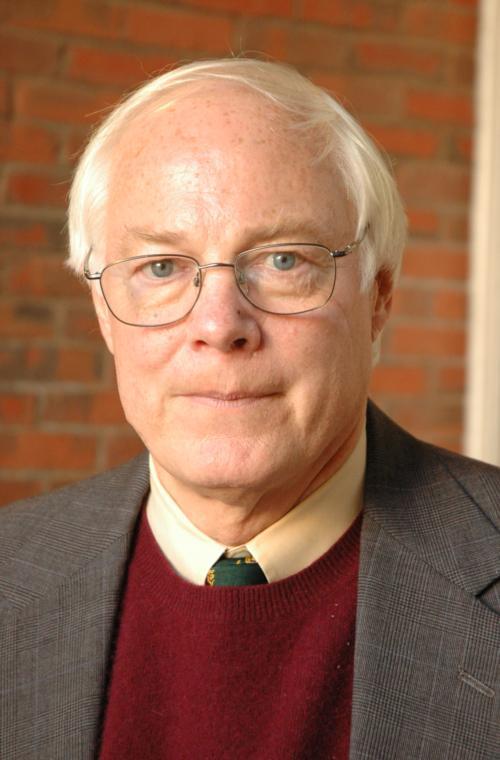
News
Summers Will Not Finish Semester of Teaching as Harvard Investigates Epstein Ties

News
Harvard College Students Report Favoring Divestment from Israel in HUA Survey

News
‘He Should Resign’: Harvard Undergrads Take Hard Line Against Summers Over Epstein Scandal

News
Harvard To Launch New Investigation Into Epstein’s Ties to Summers, Other University Affiliates

News
Harvard Students To Vote on Divestment From Israel in Inaugural HUA Election Survey
Former Rep. To Direct IOP
Iowa Republican hopes to increase campus involvement in 2008 primaries

Former Rep. Jim Leach, a 15-term Iowa Republican, will serve as the next director of the Institute of Politics (IOP), the center announced yesterday.
Leach will succeed Jeanne Shaheen, a former New Hampshire governor who resigned Friday to run for the U.S. Senate from her home state. He will serve as IOP director for one year, and the institute will begin a search for a permanent chief.
Leach is the first Republican to lead the IOP since former Sen. Alan K. Simpson of Wyoming who did so from 1998 to 2000.
“It’s an honor to be associated with an institution as venerable as the IOP,” Leach said in interview yesterday. “Jeanne has been an exceptional head of the IOP, and, personally, I am looking forward to working with our students and staff.”
Leach, 64, said his priorities as IOP director would be to increase student participation in the 2008 presidential primaries, and to continue the trend toward greater internationalization of the institute.
He said he feels the role of youth in the 2008 election is “of extraordinary significance.”
“Young people have never had a greater vested interest in politics,” Leach said. “It isn’t grandfathers who are asked to go into the armed forces or potentially face a draft. And on economic issues, young people have an interest in fiscal reasonableness—if you amass fabulous debt, the people who are going to pay for that are those who are just now entering the workforce.”
Leach, a moderate Republican and former chairman of the House Financial Services Committee, was defeated for reelection in 2006 by a first-time candidate, marking one of the biggest surprises of a cycle in which Republicans lost 30 seats in the House.
Many experts blamed his defeat on a toxic political environment caused by the deteriorating situation in Iraq, even though Leach himself had opposed the war from the start.
Since his loss, Leach has served as a visiting professor at the Woodrow Wilson School of Public and International Affairs at Princeton. He is on leave from the school for the next year.
The IOP had attempted to recruit Leach for a fellowship in the spring, but he ultimately chose to take the position at Princeton, according to Alexander I. Burns ’08, the editor of the Harvard Political Review and member of the IOP’s student advisory committee.
Burns, who met with Leach last semester, said that Leach is “phenomenally approachable” and that he brings a slightly different set of skills than past IOP directors.
“He has more formal academic training and may be more instantly in tune with university life,” Burns said. “And I would say that his professional experience has more emphasis on international relations than any directors really since the 1980s.”
Professors at the University of Iowa, located in Leach’s hometown of Iowa City, said yesterday that the congressman is widely respected in the overwhelmingly Democratic district and had often worked cooperatively with the university.
Cary R. Covington, a professor of political science at Iowa, called Leach “a very civil, very even-handed, remarkable individual,” adding that “he’s an ideal Republican to deal with because he’s so reasonable and so open-minded.”
“It took an absolutely disastrous war policy by the Bush administration to cause him to lose,” Covington said. “When he lost, Democrats held going away parties for him.”
Peverill Squire, who also teaches political science at Iowa, said that Leach had “always been sensitive to concerns about universities,” and that he has been helpful to the university in “many ways that are often behind the scenes—for example, in getting visas for people to participate in [Iowa’s] international writers program.”
Squire predicted that Leach would be “well-received” at Harvard because he “always managed to remain above the partisan fray” throughout his 30 years in Congress.
—Staff writer Paras D. Bhayani can be reached at pbhayani@fas.harvard.edu.
Want to keep up with breaking news? Subscribe to our email newsletter.
